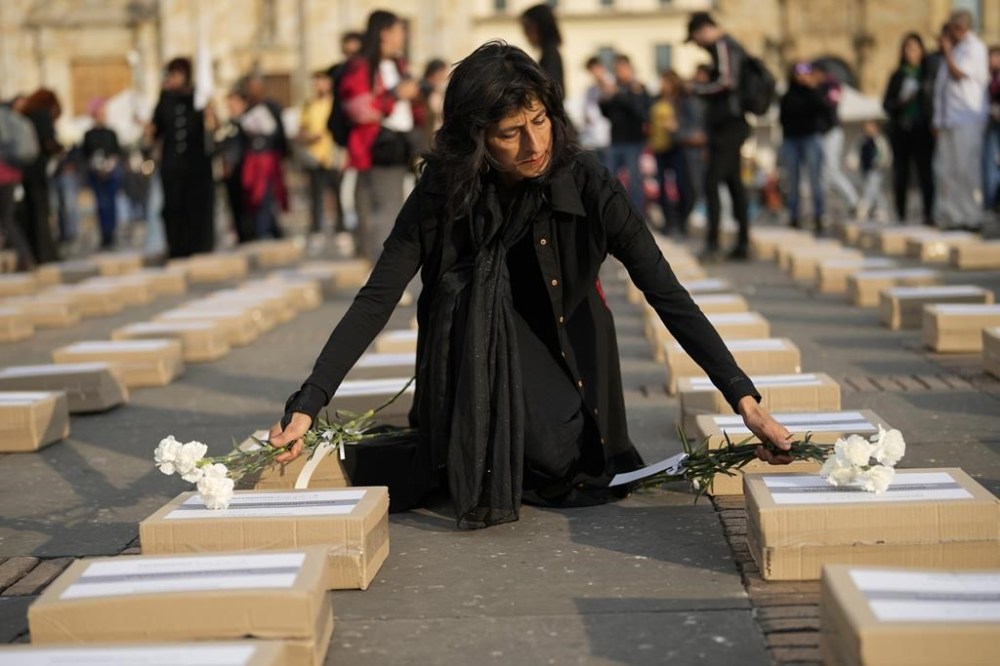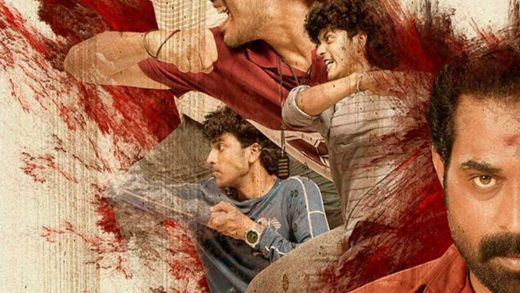
BOGOTÁ, Colombia (AP) — Holding white carnations, hundreds of Colombians marched in front of congress Tuesday to mourn the killings of human rights leaders and the murders of hundreds of former rebel fighters killed after signing a peace deal with the government that ended five decades of war.
The protest was organized by human rights groups that have become increasingly concerned about attacks against civilians in rural pockets of Colombia where violence persists despite a 2016 peace deal between the government and the Revolutionary Armed Forces of Colombia — known by their Spanish acronym FARC — that had raised hopes among Colombians exhausted by years of armed conflicts.
“All lives must be lived fully” said Gloria Arias, an activist with the group Let’s Defend Peace. “We are here to ask armed groups who are killing those who want to build peace to stop their violent actions, once and for all.”

According to the United Nations, more than 400 former FARC fighters have been murdered since they laid down their guns in 2016, including 47 last year.
Elizabeth Dickinson, a Colombia analyst at the International Crisis Group said the government’s inability to protect these former fighters could undermine its efforts to negotiate peace deals with the nation’s remaining rebel groups — including the National Liberation Army and the EMC, a group led by former FARC fighters who did not join the 2016 peace deal.
The administration of President Gustavo Petro has signed cease-fires with both groups, but little progress has been made on other issues. And the rebel groups continue to fight among themselves while threatening civilians in areas under their control, even if they are not attacking military targets.
“The trend of violence against ex-combatants is a strong deterrent to disarmament” Dickinson said. “It’s a significant factor that has led us to the position where none of the groups that are in dialogue with the government, are contemplating disarmament at this point.”
The slayings of former FARC fighters have largely occurred in areas where the EMC and the ELN are fighting for territorial control — with some of the former combatants being threatened for refusing to join those who are still in arms.
Several widows of former FARC fighters travelled to Bogota for Tuesday’s protest, carrying photos of their slain husbands.
“I’m here to raise my voice for those who can’t be here” said Nidia Arcila, the partner of Ronald Rojas, a former FARC fighter who was killed in front of his children in 2022. Rojas had been leading rural development projects in Huila province aimed at reintegrating former fighters into society.
“We need the government to stop this, and help peace to finally reach our territories” Arcila said.
The protest was held in a broad square, where 1,000 symbolic urns were placed on the ground. Each one was labelled with the name of a slain former fighter or a human rights leader.
“This is a place where we meet for concerts” said Patricia Ariza, a playwright and former minister of culture who helped organize the event. “Today it’s a graveyard.”
___
Follow AP’s Latin-America coverage at


